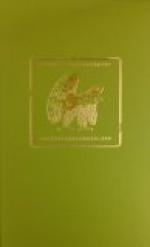It was evident, after his interview with Hollis Tisdale, that Mr. Bromley was in no hurry to precipitate the side issue for which he had prepared. Every one who had taken coal land in the Morganstein group had been on the witness stand, and many more who had not filed claims had given testimony, yet the prosecution held him in reserve. Then came a day when Lucky Banks, recalled to tell what he knew about the Chugach trail, made some astonishing statements. He had traveled that route with a partner at the end of a season in the Copper River plateau. They had expected to finish the distance by the new railroad. The little man was brief but graphic. It seemed to have been a running fight with storms, glaciers, and glacial torrents to reach that narrow-gauge track before the first real September blizzard. “But we could have stood it,” he concluded in his high key, “my, yes, it wouldn’t have amounted to much, if we could have had firewood.”
“Did you not know the fallen timber was at your service?” questioned Mr. Bromley. “Provided, of course, you conformed to the laws of the reserve in building your fire and in extinguishing it when you broke camp.”
“There wasn’t any fallen timber,” responded Banks dryly; “and likely we would have took it green, if there had been a tree in sight. It was getting mighty cold, nights, and with the frost in his wet clothes, a man needs a warm supper to hearten him.”
“What?” exclaimed Mr. Bromley sharply. “Do you mean you saw no trees? Remember you were in the Chugach forest; or did you lose your way?”
“No, sir. We struck the Chugach Railway just where we aimed to, but a mighty lot of the Chugach reserve is out of timber line. That’s why we banked on Foster’s new train to hurry us through. But we found she had quit running. The Government had got wind of the scheme and sent a bunch of rules and regulations. First came a heavy tax for operating the road; and next was an order to put spark arresters on all his engines. He only had two first-class ones and a couple of makeshifts to haul his gravel cars; and his sparks would have froze, likely, where they lit, but there he was, tied up on the edge of a fill he had counted on finishing up before his crew went out for the winter, and the nearest spark arrester farther off than Christmas.”
A ripple of amusement ran through the crowded room, but little Banks stood waiting frostily. When his glance caught the judge’s smile, his eyes scintillated their blue light. “Likely Foster would have sent his order out and had those arresters shipped around Cape Horn from New York,” he added. “They’d probably been in time for spring travel; but he opened another bunch of mail and found there wouldn’t be any more sparks. Washington, D.C., had shut down his coal mine.”
Mr. Bromley had no further questions to ask. He seemed preoccupied and passed the recess that followed the prospector’s testimony in pacing the corridor. Lucky Banks had been suggested as an intelligent and honest fellow on whom the Government might rely; but his statements failed to dovetail with his knowledge of Alaska and the case, and after the intermission Tisdale was called.




